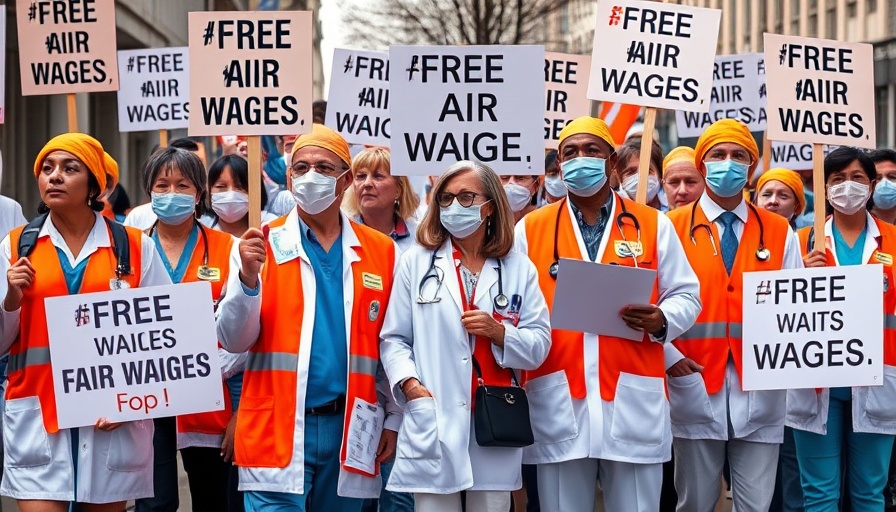
Doctor strikes draw a line in the sand for the NHS
As England begins a significant five-day walkout of resident doctors, the ramifications of this action echo through the NHS’s already fragile structure. Health Secretary Wes Streeting insists on maintaining operations, yet the tension hangs palpably in the air. This is not merely a labor dispute; it marks a critical juncture in healthcare where physicians have drawn a line in the sand.
Striking amidst a turbulent backdrop
The choice to strike stems from chronic grievances over pay and conditions. The British Medical Association (BMA) argues that despite recent pay rises, doctors' salaries lag considerably behind inflation since 2008. The storm brewing in the NHS is not just about numbers on a paycheck; it reflects deep-seated frustrations about working conditions and recognition of the indispensable role these professionals play.
Potential fallout on healthcare services
Despite the government’s wishes for minimal disruption, the reality is stark. Streeting claims that emergency services will not be affected, but how many more lifelines can the woefully overstretched staff truly bear? The supplementary assistance from senior doctors, meant to fill the gaps, raises unsettling questions about patient care and safety during this tumultuous period.
The power dynamics at play in the NHS
What is particularly disconcerting is the stark power struggle between the government and medical professionals. Prime Minister Sir Keir Starmer, in a bid to sway opinion, has denounced the strike as damaging. But is it not more damaging to ignore the legitimate concerns driving these young professionals to picket outside hospitals? Their message is clear: Enough is enough.
Voices of the striking doctors
The personal stories behind this strike are numerous, yet often overlooked in the broader narrative. Many of these resident doctors entered the field motivated by compassion and a desire to serve. Yet as they confront unsustainable workloads and inadequate remuneration, that idealism can wane. It’s essential we listen to their voices – they are not just ‘employees’ but vital stakeholders in the future of healthcare.
What’s next in the battle for fair treatment?
As strikes play out over the coming days, it is critical to scrutinize what will unfold post-walkout. Will the government negotiate to address the root causes, or will the tensions continue to simmer? The BMA has indicated a willingness to discuss non-pay issues, but clarity on pay is a non-starter for the government. This impasse must end; the health of a nation hangs in the balance.
A call to action for local communities
In Leicestershire, the stakes are high. The local community must rally in support of the striking doctors. Public opinion can make waves; it can turn the tide in favor of a system that genuinely values its healthcare providers. Attend your appointments, voice your support, and ensure that the narrative does not become one of neglect and indifference towards the significant contributions of resident doctors.
Everyone has a stake in this fight. The outcome of this strike isn’t just about pay; it’s indicative of our values as a society. Let’s not sit idly by while our NHS is pulled apart at the seams.
 Add Row
Add Row  Add
Add 




Write A Comment